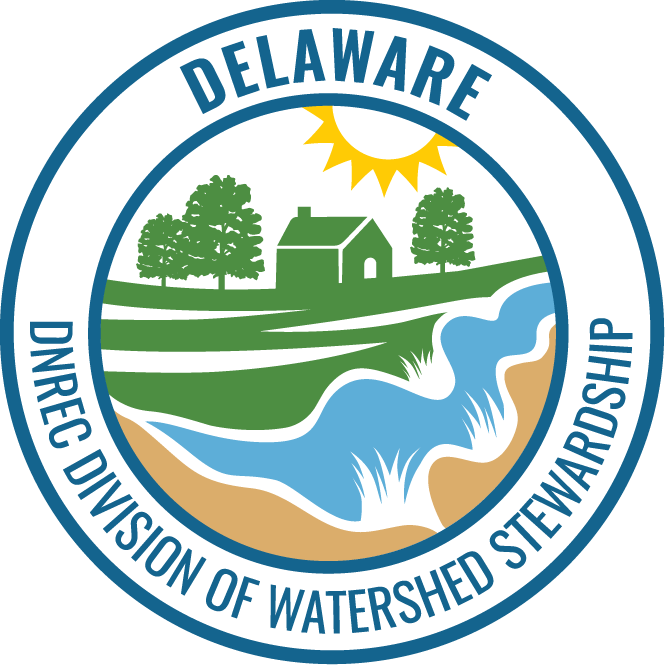
Facebook Twitter Instagram YouTube
Written on: December 22nd, 2025 in Wetland Animals
By Alison Stouffer, DNREC’s Wetland Monitoring and Assessment Program If you are like me, you have likely been driving down a rural road, paddling through a tidal wetland, or going for a stroll through a state park and seen a furry, brown animal that had you doing a double take. That wasn’t a weird looking […]
Written on: September 24th, 2025 in Education and Outreach, Wetland Animals
By Olivia Allread, DNREC’s Wetland Monitoring and Assessment Program Anything new certainly can be intimidating. Sports, art mediums, cooking, recreational activities, you name it, they all have their own culture and lingo that some spend a lifetime mastering. Particularly in the natural resource world, certain topics or hobbies can sometimes come off as an exclusive […]
Written on: December 10th, 2024 in Education and Outreach, Wetland Animals
By Olivia Allread, DNREC’s Wetland Monitoring and Assessment Program Though pretending to be a National Geographic photographer is on our resumes, working in wetlands really does provide an exclusive opportunity to get up-close and personal with wildlife. Weather, soil, water, humans – many factors influence the presence of fauna in all wetland types. Each type […]
Written on: May 17th, 2024 in Education and Outreach, Natural Resources, Wetland Animals
By Ashley Tabibian, DNREC’s Shellfish and Recreational Waters Program What do you think of when you think of oysters, clams, and mussels? For being so small, they are somewhat complex creatures with almost superhero like abilities. Do you think of how nutritious they are? According to WebMD, shellfish are low in calories, high in protein […]
Written on: March 13th, 2024 in Natural Resources, Wetland Animals
By Alison Stouffer, DNREC’s Wetland Monitoring and Assessment Program It’s that time of year again where the days are getting longer, the weather is getting warmer, and life begins to return to our beloved wetlands. The sea of monotonous brown and gray will slowly make way for gorgeous greens, speckled with the purples, pinks, yellows, […]
Written on: July 26th, 2023 in Natural Resources, Wetland Animals
By Alison Rogerson, DNREC’s Wetland Monitoring and Assessment Program Summer means warm weather (ok hot), spending more time outside, exploring the woods, wading in streams, and fishing. This makes it more likely that you will encounter one of Delaware’s 14 species of turtles! Safe to say that there is a turtle in every type of […]
Written on: March 24th, 2023 in Education and Outreach, Wetland Animals
By Olivia Allread, DNREC’s Wetland Monitoring and Assessment Program Ah, the start of spring. We all have our own personal odes to season. Many of us wait for that 70-degree day, some prepare gardens for planting, while others set the date to do that annual “cleaning” and get the dust off their ceiling fan blades. […]
Written on: December 19th, 2022 in Wetland Animals, Wetland Assessments
By Brittney Flatten, DNREC’s Watershed Assessment and Management Section For the past year, I’ve been working with another DNREC scientist to document submerged aquatic vegetation (SAV) in Delaware’s streams, ponds, and bays to get a better understanding of where these plants like to grow and how we can protect them. I had previously observed some […]
Written on: September 26th, 2022 in Wetland Animals
By Kayla Clauson, DNREC’s Watershed Assessment and Management Section Wildlife cameras are a tool that scientists can use to collect wildlife field data. Discussed previously in a past blog post, wildlife cameras allow scientists to collect field data secretly, without being there, round the clock. This wildlife habitat utilization monitoring is part of a salt […]
Written on: July 13th, 2022 in Education and Outreach, Wetland Animals
By Laurel Sullivan, DNREC’s Delaware Coastal Programs Attention! Calling all birders, experienced and newbies- the Delaware National Estuarine Research Reserve (DNERR) has a Big Year challenge for you! A Big Year is a challenge birdwatchers set for themselves to see or hear as many birds and bird species as possible within a single year. This […]